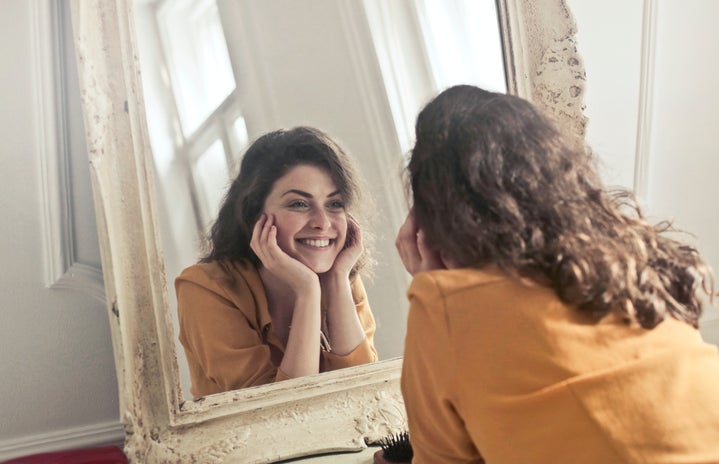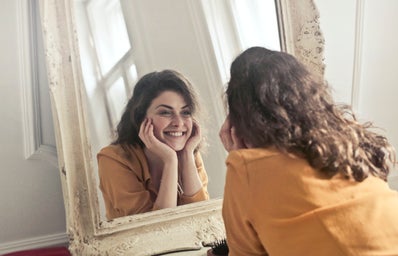My thoughts on how media icons have produced an idealized existence that’s nothing more than a hoax.
As I scroll through social media every morning, day and night, like most girls I know, I actively make the choice to expose myself to the constant pressure of an unattainable version of perfection. The rise of social media influencers has not only caused an increase in access to fame, but has normalized aspirations to detach from the ‘self’ and transform into anyone else. As women, we are defined and assessed by the people around us, which is nothing more than a never-ending rabbit hole of dissatisfaction.
I can confidently say that most women I know hold their insecurities close to their chest, however painful it is to say, these parts of ourselves we dislike so greatly are generated by what we ingest from the internet. We see people with hair we wish we had, bodies that we dream of, or a closet we could only dream of. It’s expected, I think, for all women now to feel pressure to become someone we don’t even know, and who will never know us. These media ‘icons’ like Alex Earle or Kylie Jenner are nothing more than an illusion of perfection, and many crave what they have. Now, not only has a completely outrageous beauty standard caused detriment to the minds of young women and girls everywhere, but destroys any sense of individuality we possess.
We morph ourselves into these ‘people’ whose lives are carefully curated and filtered through Photoshop and staging, so you can say we are products of our environment… right? While the debate of nature versus nurture has existed long before the creation of social media, it’s easy to say that in the age of technology, our environment can quickly overcome the ideals and aspirations we should be caring about or have been taught to care about. When we are young, we learn the golden rule, kindness, and to embrace our differences. Rather than trying to be a better person, or become someone with intelligence, it matters more how strangers perceive you with nothing more than a glance. Now more than ever, these ‘icons’ perpetuate feelings of worthlessness and disgust with ourselves. While they may not mean to do this, it’s semi-unavoidable that they’re actively causing harm.
It’s not normal for 12-year-old girls to diet because some online personality said it helps them with bloating, or for high schoolers working a minimum wage job to want to spend all their money on a $150 workout set because their favorite TikToker said it was ‘life changing’. As I said earlier, I think that as we take in these aspirational aesthetics or vibes we feel we need to emanate, we lose ourselves in the process.
There is no real cure for the disease of wanting to become someone else, and it may be that most of us are oblivious to the effect these online personalities have, however, it’s very real. These people are nothing more than a facade of perfection, an illusion of a human being. They are brought into fame because they have something we want, yet they brainwash us into thinking what they have or how they live is the right way. When you really think about it, social media presences that tell us what to buy, to eat, where to go and what to do seem like the definition of a cult leader. They’re often motivated by money and some inherent need for power, but at the cost of what? When did it become okay to make millions of people feel like an insubstantial object whose existence relies on becoming someone else?


